Needles to say that knowing the city and enjoying its touristic and leisure offer in just one day, even in three, is not easy. If during your stay, some of the numerous events held during the year are taking place, it is more difficult; but during the summer festivals this can be even worse – or better, depending on the viewpoint. This aims to be just a proposal.
Remember that you have the Tourist Information Office at hand, where you will receive all the information you need about what it is happening in the city during your stay. In any case, whether you travel on your own, with your partner, in group or even with children, the experience will be pleasant and, we hope that also unforgettable.
In the MORNING, after enjoying a hearty breakfast in any of the cafés in the old quarter of the city especialied in breakfasts, you have to attempt your first approach to Vilagarcía. It cannot be other than surrender yourself to its streets and squares but , as we say here, with “sentidiño” or common sense. The city has a Historic Tour with explanatory panels that will lead you along the most interesting spots. It is circular so you can start wherever you want.
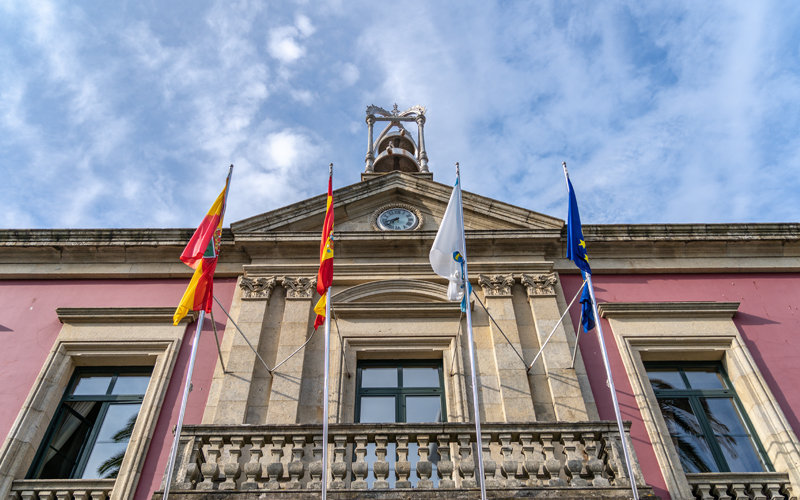
Along that itinerary, you will see historic buildings as the Town Hall; centenary gardens such as those of the Plaza de Ravella and España; another square, the Plaza de la Independencia that recalls the heroic past of the city because it was here where the fist Galician people rose against the French invasion, and the origins of the city because the pillory was there in medieval times. You can also see a pazo, a convent and a church which is catalogued as historic-artistic monument as a whole. After a 5-minute walk you can find the castro de Alobre, which stands out not only for being in the city centre but also because it is one of the most important archeological sites in the north-east of the peninsula. A step away, Valdés Bermejo botanic garden with specimens brought from different parts of the world in the 1930’s. Then, the marketplace, a unique building dated from 1929, and another step away, the old Plaza de la Pescadería, or old fish market,a construction that represents the iron architecture of the 19th century. A little farther, the Alameda, the meeting point per excellence and inmediately after it, Valentín Viqueira street, the old street of the Comercio, and A Baldosa, the social hub of the city, which used to be called the Plaza da Verdura -vegetables- which has become an area full of bars and cafés, all of which have their corresponding terraces.
The fresh produce market is appealing at any day of the week, but remember that on Tuesdays and Saturdays, coinciding with street market days, you will have no choice but swarm about the fish and shellfish, flowers and legumes, cheese, and cold cuts, clothing and shoes, all that in the hustle and bustle created by those who want to sell and those who want to buy.
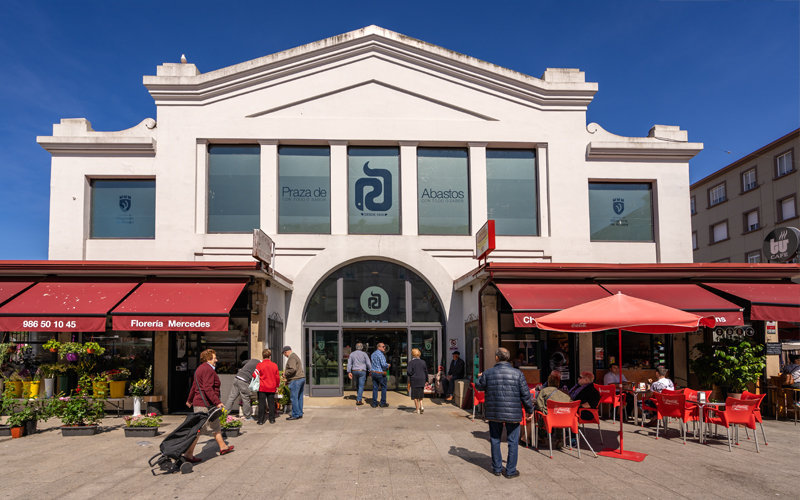
Getting lost in the city, in the good sense of the word, will take you a good part of your morning, so you must have a deserving break. You can have an aperitif in A Baldosa of adjacent streets (Romero Ortiz, Méndez Núñez, Juan García, O Castro). For lunch, you can opt for these streets, whose bars are specialized in tapas, or for some of the good restaurants located in the city centre of in the outskirts (see “gastronomy”).
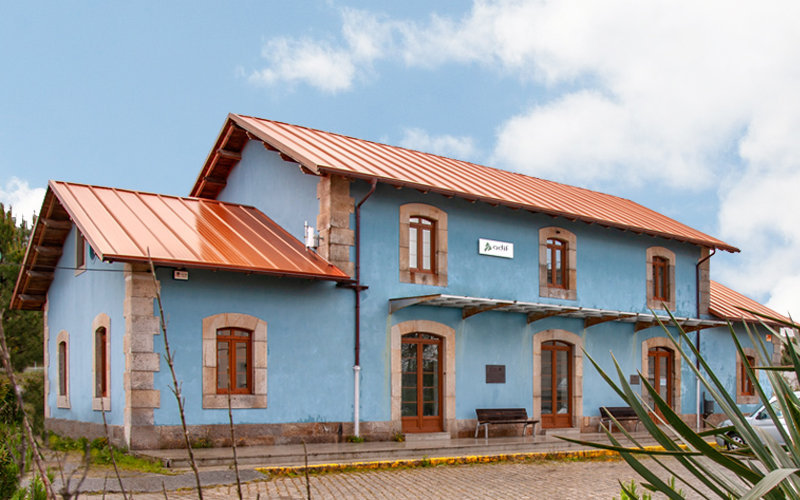
In the EVENING we suggest strolling along the almost 2-km seafront promenade, which joins Vilagarcía and Carril, with an uninterrupted sight of the sea, without being disturbed by any car. Halfway across, there is a stop that you should not miss: the Railway Museum. It is not a very big museum, just the building where the old rail station used to be, but it does have a great symbolic value: the fist railway track in Galicia was open in 1873 and joined Santiago and Vilagarcía, its natural port. The museum is precisely the station that marked the end of that first itinerary. Mockups, videos, children’s games invite the passenger to travel through the time.

After the museum, we come back to the seafront promenade. Carril is a stone’s throw away. At that point you can see the beach divided in different plots with stones and poles. You may have heard about them: the well-known clam farms of the not less well-known Clams of Carril. Regarding the last curve of the promenade, it allows you to see the crowning jewell, the Cortegada island, included in the Atlantic Island National Park. The farms, the boats, the embrace between the ría of Arousa and the river is worth seeing and enjoying. There is a song which talks about it: “if you go to Carril, just after arriving there, you will see Cortegada laying down on the sea, laying down on the sea/ to look after it, the sailors go on their sailing boats”.
If you are there whilst the sunset is taking place, you will find difficult to forget the scene. So, sit down on a terrace and have a drink, or, if it is at NIGHT and the weather permits it, go directly to have your dinner al fresco with the view of the sea in front of you.
To finish it off, have a quiet drink in the same Carril, looking at the lighted bay, or go back to Vilagarcía and in the city centre, the port or the Marina avenue you will find a great deal of nightlife choice for all tastes.
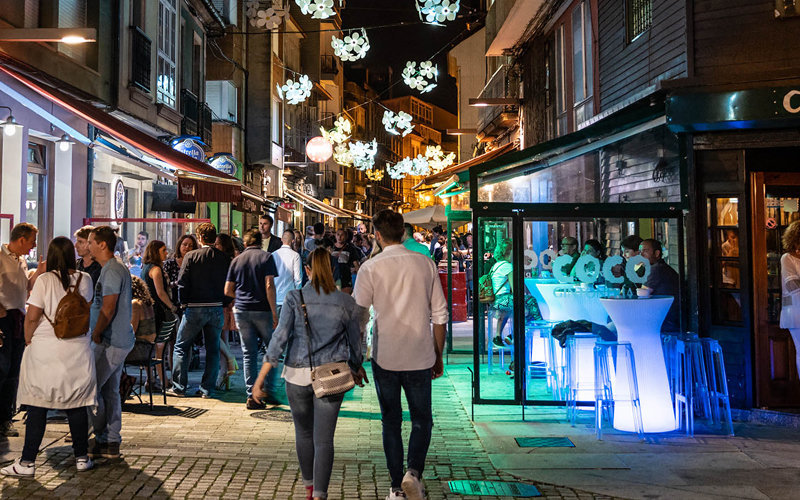
To start the MORNING well, have another delicious breakfast, this time in Carril, while looking at the sea, because today’s goal is Cortegada island which is right in front of Carril. With the help of some of the companies offering transportation and guided visists to the island, we can go to the smallest but also the most accessible, leafy, and magic of the Atlantic islands. It is a trip you should not miss: you can learn about the evolution of Corticata already mentioned by Plinio, tales about Romans and Vikings, the power of a monastery, the construction of a little hospital and above all, about the self sufficient community created by a group of settlers who took advantage of the fresh water of the island and combined it with farming, shellfishing and fishing in order to survive. All those remains are today fossilized in the ruins of some houses in which there where children running around, wineries, granaries and stables all shared by the community and that happened not more than a hundred years ago.
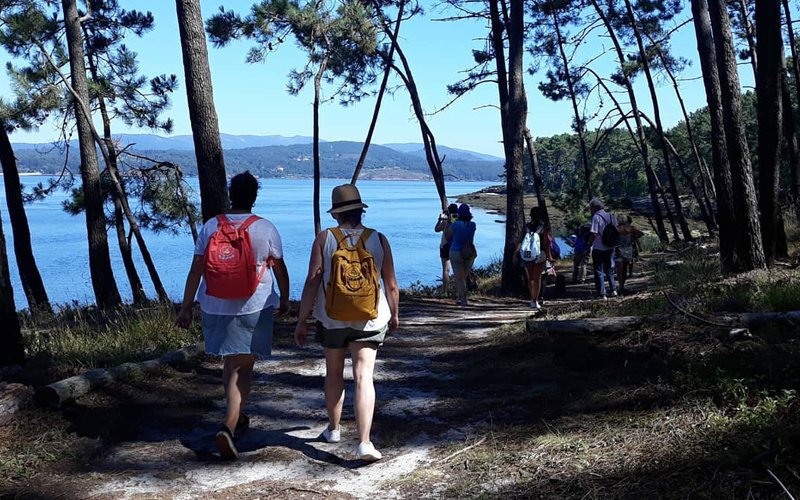
Two well-defined trails will allow you to get into a forest of laurel unique in Europe without losing sight of the sea. At that point you can imagine what the island could have been if, in 1907, the idea of building a summer residence for the King Alfonso XIII had flourished. He was donated that island by the neighbours, although finally the monarch opted for The Magdalena palace in Santander. There, you can also enjoy its more than 800 species of fungus and huge trees including the stone-eating tree that you will have to find.
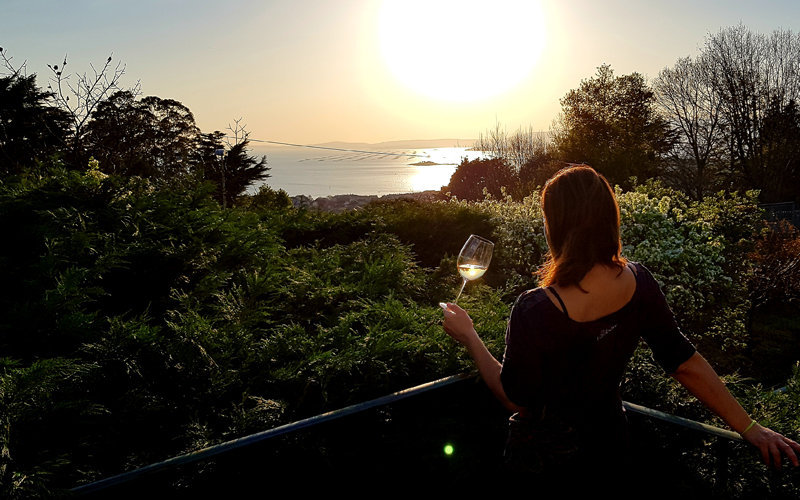
Back to Carril, after the visit, with Cortegada and the voyage still fresh in your mind, we suggest going to the handmade canned food company “Los Peperetes” where you will see first hand, how the recently caught fish or shellfish turns, under expert hands, into a different delicacy. An alternative to this canned food is the winery Maior de Mendoza, just 3 km from there, where you can see not only how the renowned wine is produced, but you can also taste it whilst enjoying the breathtaking views of the stuary. Make the most of your time there to have lunch in the port of Carril, either having some tapas or at a restaurant. No matter what you choose it will be perfect as quality and satisfaction are ensured.
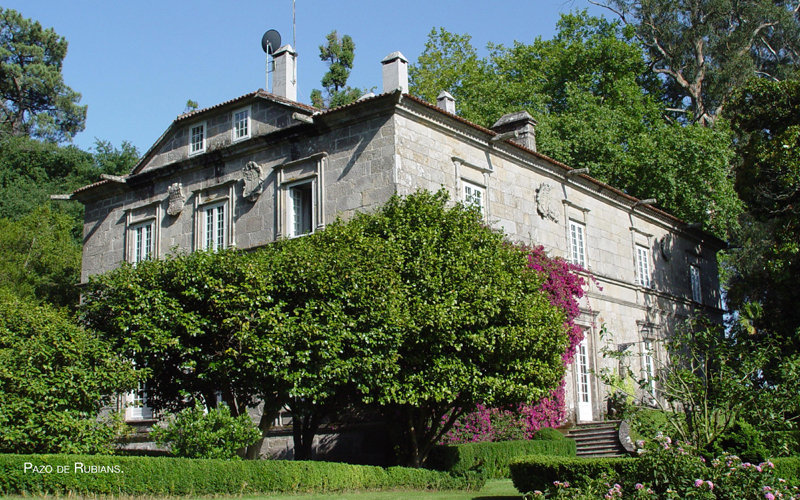
In the EVENING, another unmissable proposal: the pazo of Rubiáns. Get all your senses ready: a 15th century pazo, built over a 12th century defensive tower and remodelled in the 18th century to become a stately home with a style more similar to a Frech chateaux than a typical Galician pazo. Its, also, French style gardens, will leave you open-mouthed, not for the layout of its flower gardens, its centernay trees, or its pond and statues but also, and specially, for its more than 4,500 specimens of camellias; for this reason the pazo of Ruabiáns has been granted the merit of the International Camelia Garden of Excellence. If it were not enough, it is surrounded by 25 hectares of Albariño which you can visit as well as the inside of the pazo. To finish off, you can taste its wines in a winery built in the 16th century or buy some of the cosmetic by-products made with camellias. Or both.
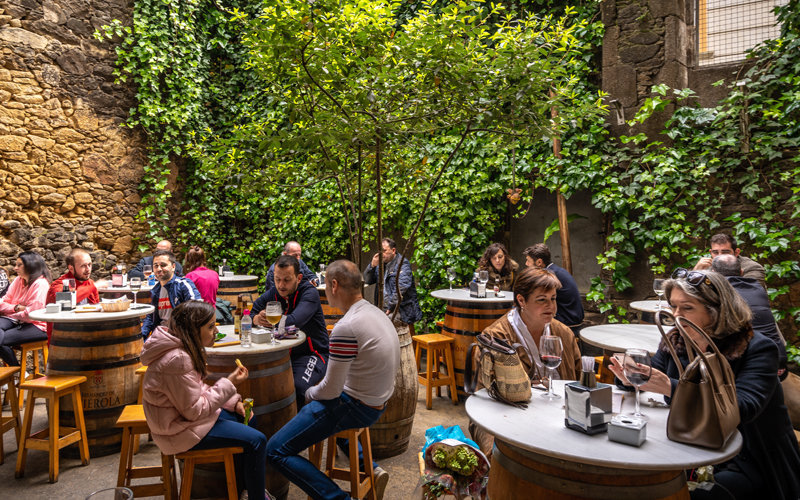
After this unforgettable visit, and back to Vilagarcía (about 4km) a deserving rest is necessary. AT NIGHT, if you prefer to enjoy some leisure activity, do not hesitate to check the list of events in the Auditorium, in the Salón García or even in the 7- multiscreen cinema next to the recretational port. But, rememeber, that the Tourist Information Office is at your disposal.
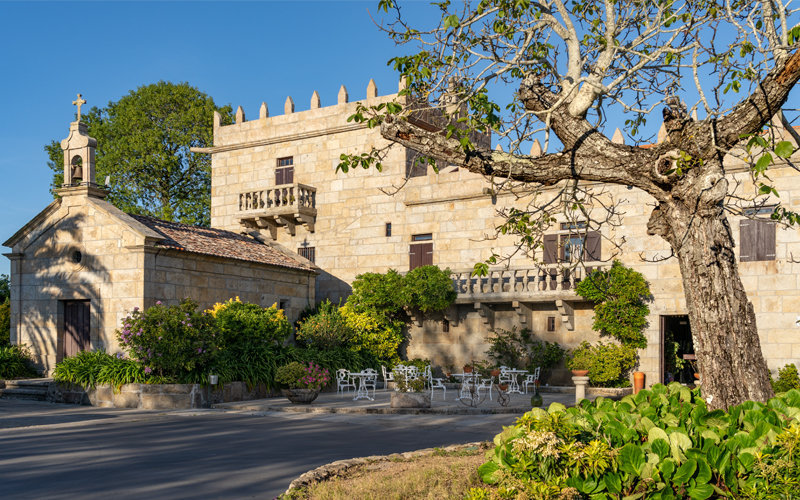
In the MORNING we encourage you to start that new day in Viaxoán, the third village and port that make up today’s Vilagarcía de Arousa. You can see the ría from another perspective, the southern side of the council. You can either have breakfast in the port or go to the Rial hotel-pazo, also catalogued as Bien de Interés Cultural (Heritage of cultural Interest), no wonder it is one of the best examples of the typical Galician pazos which were built in a vast extension of land with the aim of becoming a farm. Close to there is the Sobrán church that you should not miss. It is an extraordinary example of the Galician Romanesque and it is attached to another pazo with a clear reminiscence of medieval constructions which share the same name, Sobrán. Just 200 m from there is a family-run winery (Eladio Piñeiro) that you can visit . You can learn how a bunch of grapes can become a wine that, later on, will be sold as a “private collection”. After the visit to the winery you can come back to Vilaxoan (just 300 m) to know another pazo, Pardiñas, the counterpoint of those already mentioned, as this is a clearly urban stately home.
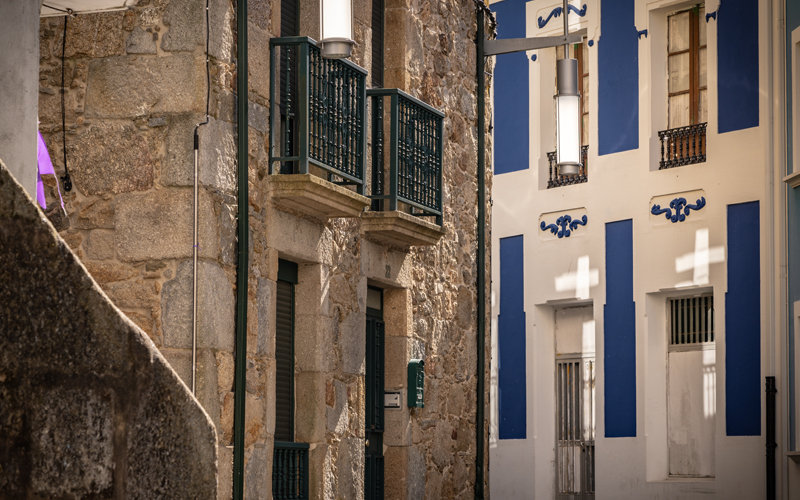
Wandering around the narrow streets you can see some remarkable example of the architecture typically used for the sailor’s houses, with their typical outdoor staircase leading to the upper floors of the house. And then it is lunchtime. Vilaxoán offers some good options if you want to enjoy an authentic homemade meal eaten at a seaport.
In the EVENING, and taking into account it is the last day, we suggest two options: one more relaxing and the other more active, to fit everybody’s mood. The first one consists of coming back to Vilagarcía, getting on the touristic train to have a panoramic view of the city from a different standpoint, or simply surrender yourself to the pedestrianized streets and squares. If you love shopping, you must know that you can find a little bit of everything ranging from centenary shops to international franchises but also delicatessens where you can take with you a bit of your stay in Vilagarcía either in a blottle, in a can or in a box. No matter what you choose it is going to be the real essence of Vilagarcía de Arousa.
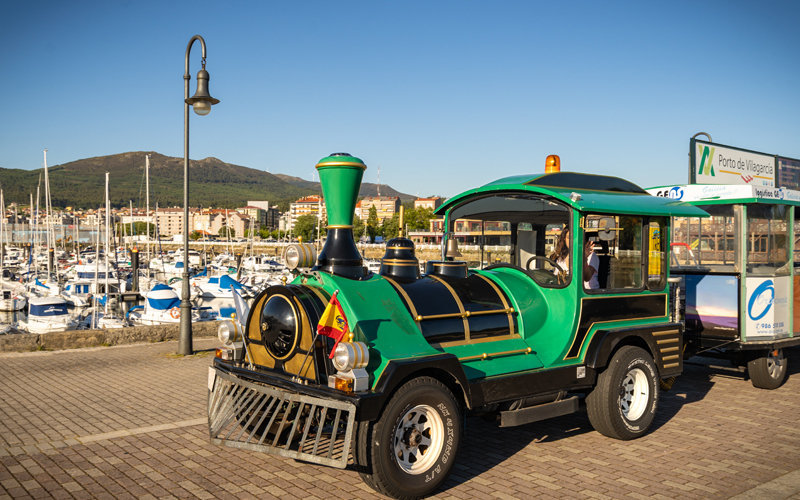
The other, more active proposal, consists of going to Carril to follow the Seafood Route. It consists of rolling up your trousers, literally, and getting into the sea in order to know, following the expert advice of the women shellfish gatherers, the productive and gathering process of the clams and cockles that later on will be on your table. The women will provide you waterproof clothing and the necessary tools to become a shellfish gatherer for a while. Whenever possible, do not fail to visit the harbour market. After these two experiences you will value, even more, the produce you can buy in a marketplace or taste at a restaurant.

Once you have stopped plunging into the (productive) world of the sea, we recommend climbing Mount Xiabre, around 7 km from Carril. There, there is a recreational area, Fontefría, where you are likely to see wild horses. You can trek through Xiabre, but whatever you do you should not miss the breathtaking views: the entire ría de Arousa, the confluation between the ría and the river Ulla, the Cortegada island, the valleys of O Salnés (to the south) and Ullán (to the north), Carril, Vilagarcía and Vilaxoán making up a unit.
At NIGHT, no matter which alternative you have chosen, to finish off you can enjoy some tapas or dine out at some restaurant and after that you can have a quiet drink on a terrace with the sight of the sea. Think of everything you have experienced during those days. Let’s see how long it takes you to look forward to coming again.
